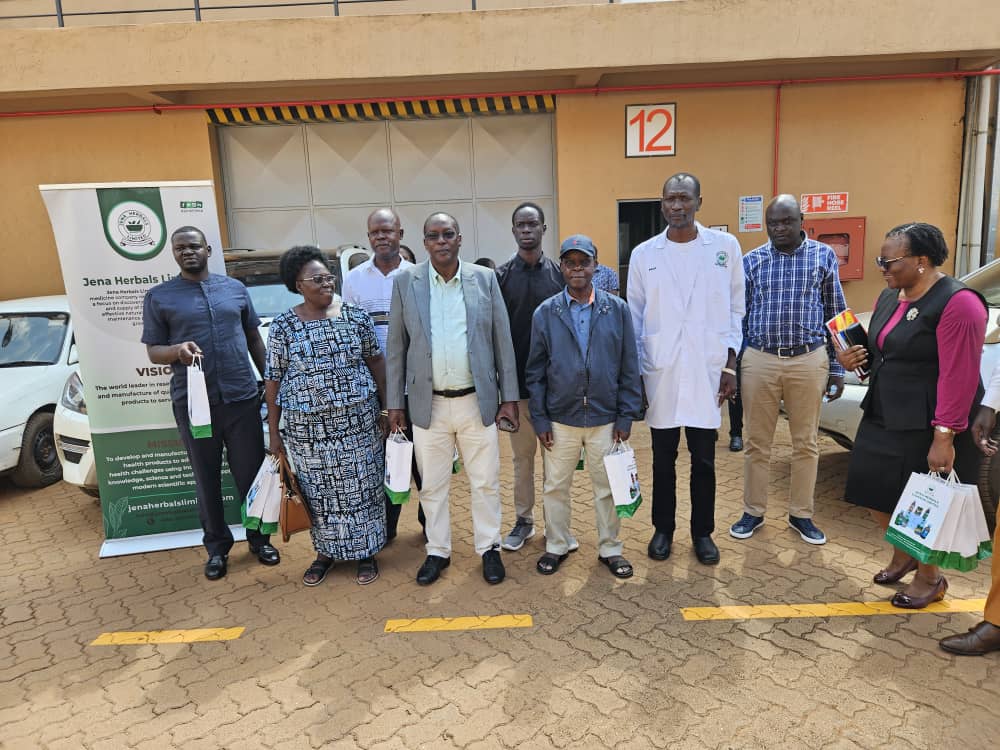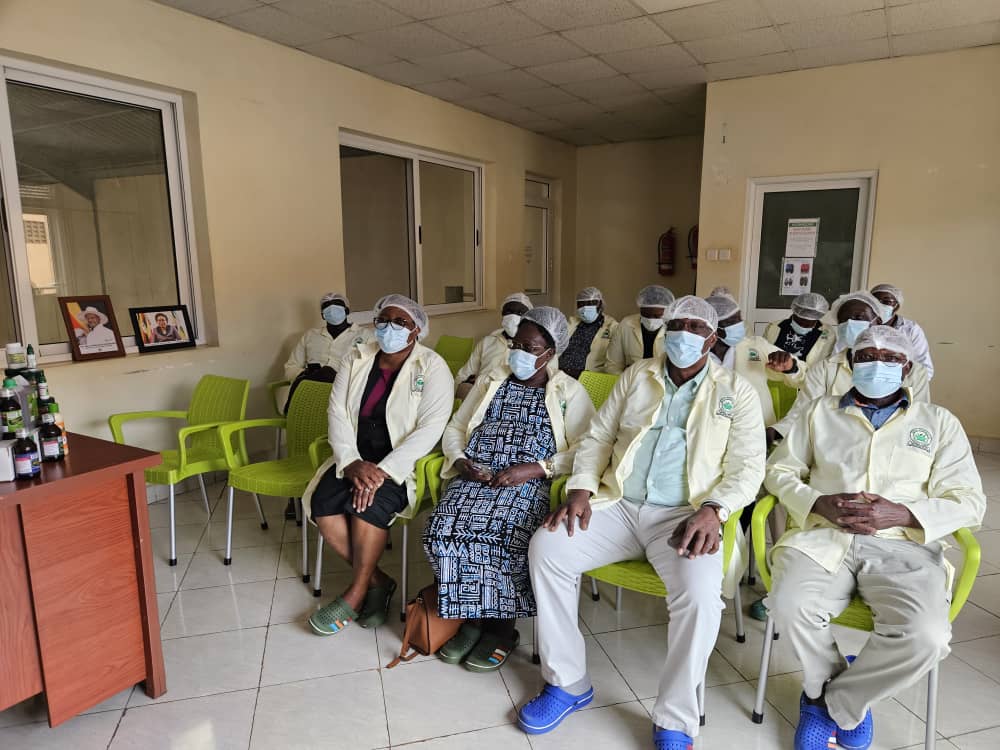
Luzira, Uganda – On Tuesday, the Parliamentary Committee on Science, Technology, and Innovation, led by Hon. Eng. Niyonsaba Alex, paid a visit to Jena Company Limited to assess its progress and hear firsthand about the hurdles it’s facing in pioneering herbal medicine innovation in Uganda.
Founded by Prof. Patrick Ogwang Engau, Jena Company Limited first gained national attention during the COVID-19 lockdown, when its Covidex herbal syrup became widely used across the country as an immune booster. At a time when formal medical options were limited and fear was high, Covidex became a household name—earning praise from the public and even informal endorsement by health workers, despite initial regulatory hesitation. This sudden spotlight catapulted Jena into the national conversation, opening up both opportunities and scrutiny.
Since then, the company has continued to develop herbal solutions, including Artavol and Jenamal, as part of Uganda’s growing interest in tapping into the “pathogen economy.” Jena has been quietly creating jobs, paying scientists fairly, and offering natural health alternatives with fewer side effects—all while navigating a tough and sometimes inconsistent operating environment.
The visit by the committee comes at a crucial time, as Jena balances promise and pressure. The company now directly employs over 100 people and remains one of Uganda’s clearest examples of homegrown, science-led innovation. But the path hasn’t been easy.
On-the-Ground Challenges
During the visit, Jena’s leadership outlined several pressing issues: limited space at their Luzira site, an unreliable power supply, and delays in construction at their new Soroti Industrial Park site, where land has already been secured.
Sustainability remains a challenge. Many of Jena’s initiatives have started with partial funding only to stall midway—often due to inconsistent financial support and lack of coordinated long-term planning.
There’s also the challenge of public perception. Herbal medicine in Uganda still faces skepticism, driven by limited public awareness and education. Combine that with delayed payments from a small client base and the company’s uninsured status, and operations are often under financial strain.
On the regulatory side, Jena is advocating for greater recognition and structured support from the National Drug Authority to help herbal remedies gain the credibility they need to grow.
Some Bright Spots
Despite the setbacks, there’s forward movement. A Presidential Grant of UGX 2.1 billion has already been released to support the Soroti expansion—a step that could secure the company’s long-term growth and impact.
Hon. Niyonsaba was optimistic, saying, “Jena Company is doing exactly what we need more of—solving our health problems using our own knowledge and resources. With the right support, Uganda can lead the way in herbal medicine research on the continent.”





